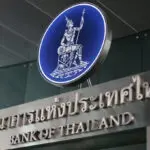By John Irish
PARIS (Reuters) - France said on Wednesday that the European Union should consider sanctions on Israeli settlers who have targeted Palestinians in the West Bank as an option and that talks at the EU to impose sanctions on Hamas commanders were progressing.
U.N. figures show that daily settler attacks have more than doubled since Hamas' surprise attack on Israel on Oct. 7 and the ensuing assault on the Palestinian enclave of Gaza. More than 200 Palestinians have been killed in the violence this year.
"We believe that the international community has a role to play to end these acts of violence which are extremely destabilising for the region, but also harm the prospects for a two state-solution," Foreign Ministry spokesperson Anne-Claire Legendre told a weekly news briefing.
She said no options were excluded, including European Union sanctions on violent individuals.
Israel captured the West Bank in the 1967 Middle East war and it has been under military occupation since, while Israeli settlements have consistently expanded. Palestinians envisage the West Bank as part of a future independent state also including Gaza and East Jerusalem.
A French diplomatic source said Paris favoured EU sanctions, but that a debate in the bloc had yet to begin on the issue.
The United States has said it is prepared to issue visa bans against "extremists" attacking civilians in the West Bank.
Legendre also said talks were progressing in Brussels to impose sanctions - asset freezes and travel bans - on Hamas commanders.
Work is also ongoing with European and other allies on cutting financing for Hamas, including through the No Money for Terror platform, and to tackle its propaganda on social media.
No Money for Terror is an ad hoc coalition set up in 2018 aimed at combatting terrorism financing.
France on Nov. 13 imposed sanctions at a national level on Hamas' military commander Mohammed Deif and his deputy Marwan Issa.
Two diplomats said the aim was to add them to the EU's list of sanctioned terrorists by mid-December. Other individuals were also being looked at, but the legal dossiers would take more time to prepare, they said.
(Reporting by John Irish; Editing by Alexandra Hudson and Deepa Babington)

 17 Chadian soldiers and 96 rebels killed in a Boko Haram attack, army says
17 Chadian soldiers and 96 rebels killed in a Boko Haram attack, army says
 Australia nears deal with ANZ to stop bank closures in the Pacific
Australia nears deal with ANZ to stop bank closures in the Pacific
 Moncler repeats it won't comment on 'unsubstantiated rumors' about Burberry
Moncler repeats it won't comment on 'unsubstantiated rumors' about Burberry
 WHO to convene emergency meeting on mpox on Nov. 22
WHO to convene emergency meeting on mpox on Nov. 22
 Thai panel picks government's candidate for central bank board chair, govt sources say
Thai panel picks government's candidate for central bank board chair, govt sources say
 China frontloads a budget of $7.87 billion to support urban affordable housing projects
China frontloads a budget of $7.87 billion to support urban affordable housing projects
 CeeDee Lamb throws shade after losing ball in sun as Jerry Jones bristles over curtains
CeeDee Lamb throws shade after losing ball in sun as Jerry Jones bristles over curtains
 Will Trump's hush money conviction stand? A judge will rule on the president-elect's immunity claim
Will Trump's hush money conviction stand? A judge will rule on the president-elect's immunity claim
 What to stream: Mike Tyson vs. Jake Paul, 'Bad Sisters,' Shawn Mendes and 'Deadpool & Wolverine'
What to stream: Mike Tyson vs. Jake Paul, 'Bad Sisters,' Shawn Mendes and 'Deadpool & Wolverine'

